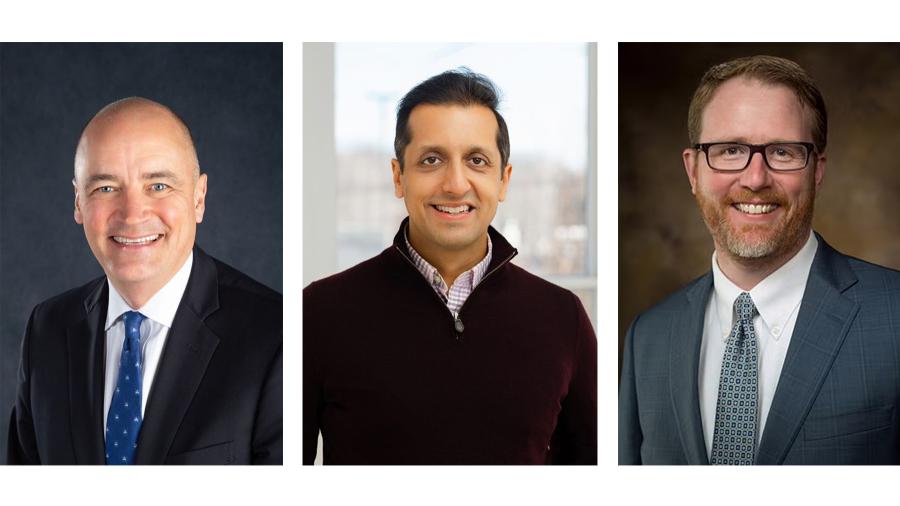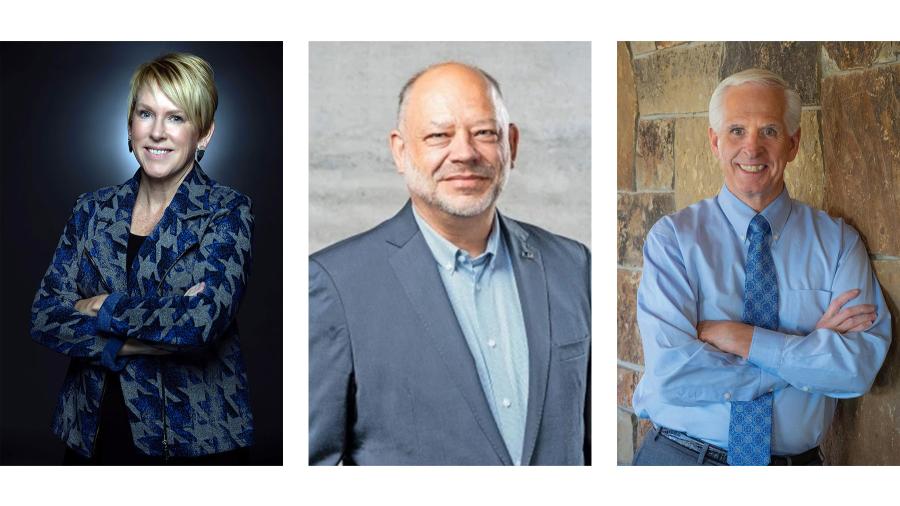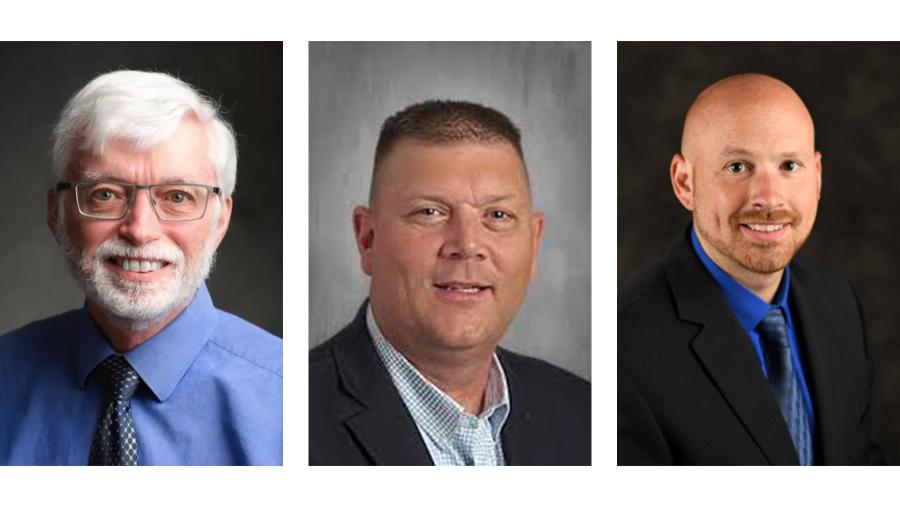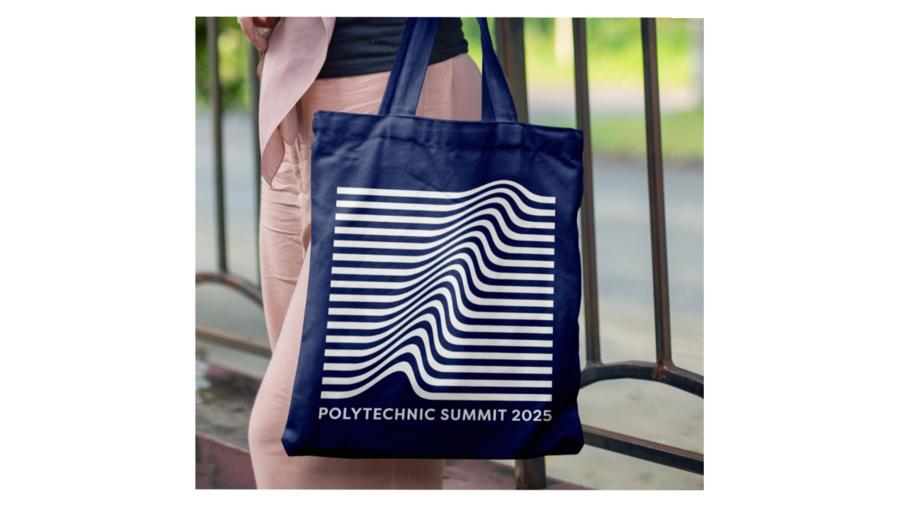National and international academic professionals and community leaders will gather in Menomonie for the global Polytechnic Summit 2025, hosted by UW-Stout, Sunday, May 18, to Wednesday, May 21.
The annual summit brings thought leaders together to shape the future of polytechnic education, to build opportunities for collaboration and partnerships, and to discuss the latest in applied research, professional development programs and community outreach activities.
This year’s theme, “Education Designed for the Future,” will include discussions on industry engagement, humanistic and AI partnerships, future-focused infrastructure, entrepreneurship and polytechnic learning.
“External and internal factors occurring across the globe are accelerating the necessary pace of change for the education sector,” UW-Stout Provost Glendalí Rodríguez said. “The theme ‘Education Designed for the Future’ is timely for a convening of polytechnic stakeholders to share insights about how we are evolving to remain relevant and leading edge. We’re excited to gather a dynamic and diverse group of institutions to share ideas, foster collaboration and continue shaping the future of polytechnic education.”
Polytechnic Summit
Welcoming academic professionals and community leaders dedicated to shaping the future of Polytechnic education.
The summit attracts polytechnic universities, colleges, institutes and programs from across the globe, including:
- American Association of State Colleges and Universities
- Hochschule Darmstadt, Darmstadt, Germany
- Howest University of Applied Sciences, West Flanders, Belgium
- Purdue Polytechnic Institute, West Lafayette, Indiana
- Sam Houston State University, Huntsville, Texas
- Utah Tech University, St. George, Utah
- Miami University, Oxford, Ohio
- Northwestern University, Evanston, Illinois
- LeTourneau University, Longview, Texas
“Stout is leading the way among both Wisconsin and polytechnic universities, as evidenced by our 99% graduate employment rate, which we attribute to reflect the work of staying relevant through applied learning and research, business and industry partnerships, and career-focused learning opportunities,” Rodríguez said.
“Aligned with our commitment to performance excellence, celebrated by our achievement of the Malcolm Baldrige Quality Award, the summit allows us to convene with thought-partners, problem-solvers and share best practices in our shared commitment to student success,” she added.
The summit was founded in 2009 by the late Chancellor Charles Sorensen, two years after UW-Stout was designated as Wisconsin’s Polytechnic University. UW-Stout is among the 3% of U.S. universities designated as polytechnics. It also hosted the summit in 2010 and 2019.
Design Wisconsin
Our 4th Annual Design Wisconsin event showcasing the impacts of Industrial Design on Wisconsin’s Culture, Commerce, Community, and Brand
As a prelude to the summit, UW-Stout is hosting the 4th Annual Design Wisconsin Friday, May 16, and Sunday, May 18. The free event is a showcase of Minnesota and Wisconsin industrial design and fashion design impact. Companies in past years have included TREK, Milwaukee Tool, Kohler, Mercury Marine, Polaris, Fiskars, Oshkosh, Harley-Davidson, Sherwin-Williams and Spectrum.
Keynotes related to AI and the humanities
The opening keynote will be led by international speaker Matt Kirchner, the TechEd Podcast host who focuses on education, workforce development and public policy.
His keynote “Hands-On Higher Ed and How AI Will Transform the University Experience” will discuss how some see advancing technology, shifting demographics and changing attitudes toward post-secondary learning as acute threats to higher education. However, Kirchner asks, might advancing technologies present the greatest opportunities to innovative leaders?

Kirchner is president of ATS/LAB Midwest. A former industrial CEO, he led three manufacturing companies for more than 20 years. He is the author of “Teaching the Industrial Internet of Things: Preparing Students and Learners for Industry 4.0.”
Rishi Jaitly, professor of practice and Distinguished Humanities Fellow at Virginia Tech, will lead a keynote on “Invisible Infrastructure: Reclaiming a Humanities-Inspired Technology Landscape.” Drawing on his decades of experience as an entrepreneur, educator and executive in and around Silicon Valley, and his learnings as Founder of the Institute for Leadership in Technology at Virginia Tech, Jaitly will offer his reflections on how the humanities might reclaim their role in technology specifically, and our culture more generally.
David Bruce, an executive partner with Gartner, will discuss “Navigating the Future: AI’s Role in Higher Education,” where he’ll explore the impact of artificial intelligence and how it can enhance educational outcomes, as well as foster an inclusive and dynamic academic environment. Gartner works with C-suite executives and their teams to deliver actionable, objective insight and expert guidance and tools to enable faster, smarter decisions and stronger performance.
Featured sessions and research showcase
A panel session on the Evolution of Education will be led by UW-Stout Chancellor Katherine Frank, Darmstadt University of Applied Sciences President Arnd Steinmetz, Utah Tech University Vice Chancellor Michael Lacourse, Purdue Professor Emeritus Gary Bertoline, Whitehall School District Superintendent of Schools Mike Beighley and Western Technical College Associate Vice President of Workforce Partnerships and Innovation Joshua Gamer.

Featured breakout sessions will include:
- Mindset, an Engineering Report: Bertoline
- A Universal Framework for Artificial Intelligence Literacy: Emily Laird, AI integration technologist, UW-Stout
- Building Future Learning Spaces Using Virtual Reality: Paul Grimm, professor of expanded realities and chief digital officer, Darmstadt
- Integrating Industry-Focused Collaboration into Curriculum and Program Design: Keif Oss and Jonny Wheeler, professors of video production, UW-Stout
The summit will also host an Applied Research Showcase, a unique platform for faculty and industry partners across multiple institutions to present real-world research and innovative projects that address current challenges across industries and communities.
“Participants can share their findings, network with professionals and gain visibility for their work in a collaborative, interdisciplinary environment. This showcase is the chance to demonstrate impact and inspire future collaboration,” Rodríguez said.

Propelling humankind forward
Graphic design and interactive media sophomores had the opportunity to have their concepts showcased at the summit. Students in a foundation’s studio course with graphic design Program Director Alex DeArmond participated in a short ideation project to create a design that would be printed on tote bags to be given to summit attendees.
Of the 15 students who presented their concepts, Grace Gilhousen, of Dresser, Wisconsin, created the winning design selected by the summit coordinators.
Within her design, Gilhousen conveyed the impact of educators in an abstract graphic resembling a wave or mountain.

“I was inspired by optical illusions and how powerful the effect could be in a 2D space,” she said. “With that in mind, I constructed a pseudo 3D wave of influence to embody the passage of knowledge between learners. The movement depicted is upward, because education is what propels humankind forward and determines how we all live tomorrow.”
The project encouraged students to “understand that they should always be thinking strategically about how a design can translate across multiple platforms,” DeArmond said. “The students really got a lot out of this exercise. In our final critique, several expressed how meaningful it was to design for a client and a real-world outcome.”




